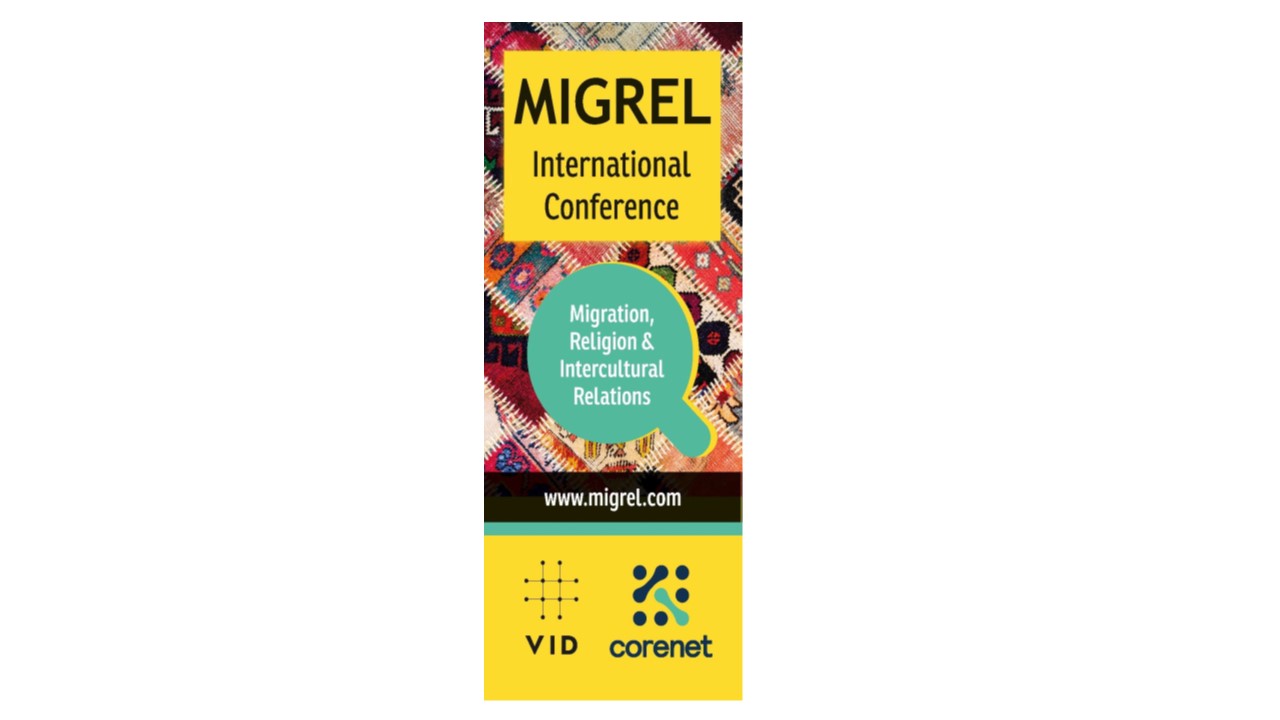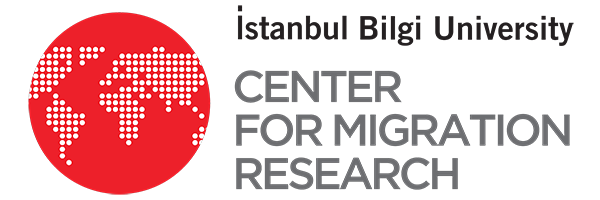The Other Stories Book will be at MIGREL-COREnet Conference in Norway

The Other Stories Book will be at MIGREL-COREnet Conference in Norway
Dr. Gülay Uğur Göksel, Istanbul Bilgi University
MIGREL Conference, focusing on the interface between migration, religion and intercultural relations, will take place at VID Specialized University in Stavanger, Norway on 14-16 June 2023. In addition to the panels with rich content, the conference will host the workshops of the COST Action COREnet (Connecting Theory and Practical Issues of Migration and Religious Diversity). Thanks to the wide network of COREnet, the first international launch of “The Other Stories” book, which I edited and was published as online open access by Istanbul Bilgi University Press in May 2023, will be organized at MIGREL Conference.
This open access book features a collection of personal stories, essays, and artworks that offer a unique perspective via art on the complex and often challenging experience of migration. With its accessible format and open access approach, this book is a valuable resource for scholars, artists, and anyone seeking a deeper understanding of the human experience of migration. It is very vital to introduce the book and the website of The Other Stories to a large audience in a period of rising anti-migrant sentiment. In this context, the COST Action COREnet, that focuses on migration and religious diversity, should be mentioned as well.
We live in an age of ever-changing migration flows driven by a variety of opposing factors. The relationship between migration and religious diversity is complex and multifaceted. Migration may increase religious diversity in a society. Coexistence of different religions and cultures, on the other hand, can sometimes lead to problems such as religious differences causing conflict and deterioration of social harmony. The religious identity is an important factor in the integration process of migrants. In some cases, religious affiliations can help migrants to find a place and fit into society. At the same time, however, it can also cause migrants to be more attached to their religious communities and result in the development of social segregation. Thus, the relationship between migration and religious diversity is influenced by several factors and the circumstances of every country and every migrant community is different. In this context, increasing dialogue and understanding between communities constitutes an important step to facilitate the coexistence of different religions.
The main aim of COREnet is to bring together interdisciplinary academics, stakeholders and practitioners from across Europe to fill the gaps and research needs in the field of religion and migration studies. This COST Action for 4 years, seeks to better explain, understand and analyze the pertinent issues and challenges, and, moreover, to forward viable solutions and ways to support migrants, migration and religious diversity.
COREnet, active since October 2021, has now 135 members from 36 European countries and the Republic of South Africa, composed of academics, researchers and representatives of various organizations in the fields of religion and migration.
“While we prepared this Action proposal and started our work, we had no idea how relevant migration and religious diversity would become in 2022 in the context of the renewed Russian invasion of Ukraine. The 2015 refugee crisis and the new reality of the Russian war in Ukraine show that Europe must be ready to reconsider social and cultural integration processes for war refugees and migrants. COREnet plans to strengthen the cooperation among researchers and stakeholders from Europe and beyond in the migration and religious diversity field, focusing on the connection between theory and practice. We believe this cooperation might result in the production of innovative ideas and sustainable solutions helping Europe to prevent and, if not possible, to be prepared for the future crisis in the area of migration and religious diversity”, says the COST Action chair, Prof. Milda ALIŠAUSKIENĖ.
In the first year of its existence, COREnet members participated in 18 Working Groups, 8 Core Group and 3 Management Committee meetings. The first Action PhD Summer School for early career researchers on migration and religion was organized in Kaunas, Lithuania, in June 2022. Also, 8 early career researchers of religion and migration deepened their knowledge through short-term scientific missions in Germany, UK, Spain, Norway, Portugal, Poland and Slovenia over this period.
In 2023, COREnet hosts Narrative Cafés, where researchers, together with stakeholders, media representatives and practitioners from the field, discuss challenges and opportunities that can improve the experiences of migrants in a foreign country. Narrative Café series, planned to take place in four countries, was launched on 29 April 2023 in Ankara by Dr. Aybiçe Tosun Süvüt (Eskişehir Osmangazi University), Dr. Besim Can Zırh (METU), Dr. Bayram Koca (Kilis 7 Aralık University), Özge Atmış (ENORB), and translator/researcher Sally Haloubi in collaboration with the Association for Migrant Rights and Social Cohesion (GÖÇDER).
My interest in the subject area of the COREnet Action increased after observing different attitudes and behaviors towards Syrian and Ukrainian refugees. On the basis of moral duty to humanity, it is accepted as a general rule to feel responsible towards refugees. Considering that Syrian and Ukrainian refugees are welcomed in different ways by host communities, we can clearly feel that the source of the sense of responsibility is not the humanity of the refugees, but their religion. I have begun to study this topic with the COREnet members Prof. Ansgar Jödicke and Angelo Tramountanis. In a co-authored chapter in an edited book in progress by COREnet, we specifically would like to focus on religious sources of ethical responsibility towards refugees. We will pose the question of which religious narratives, feelings, traditions, teachings, discourses, and practices contribute to legitimize the responsibility to welcome and protect refugees of the same religious background and which religious narratives contribute to the negative perception towards refugees from different religious backgrounds. To answer our research question, we will conduct the most similar case study analysis and plan to compare how the political and religious organizations frame narratives around the ethical responsibility to protect Syrian and Ukrainian refugees in Turkey and Greece.
To learn more about COREnet and to become part of this network, you may use the links below:
Website -> https://corenetcost.eu/
Facebook -> COREnet COST Action https://www.facebook.com/COREnet-COST-Action-Ca20107-109923095080402
Twitter -> @CorenetCost https://twitter.com/CorenetCost
Linkedin -> COREnet COST Action https://www.linkedin.com/company/corenet-cost-action-ca20107/
Youtube -> https://www.youtube.com/@corenetcost
